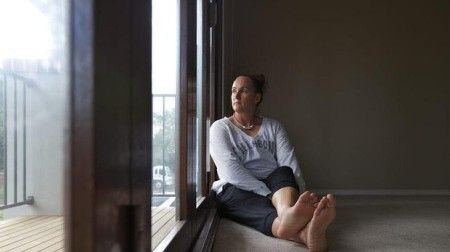Originally published in the Law Institute Journal
Cite as: September 2014 88 (09) LIJ, p.28

When it comes to police violence and misconduct Victoria’s laws protect police, not its citizens.
The new Victoria Police Act 2013, which came into force in July, may already need to be amended due to a recent United Nations Human Rights Committee (UNHRC) decision.
In a joint letter addressed to the Victorian Premier, Attorney-General, Leader of the Opposition and shadow ministers , 13 organisations, including the LIV, have requested a review of the new Act and the Independent Broad-Based Anti-Corruption Commission Act 2001.
These Acts govern, among other things, the processes and procedures (including disciplinary mechanisms) for complaints about Victorian police and protective service officer misconduct – a system that is under increasing scrutiny.
The damning UNHRC decision in Horvath v Australia backs what many in our community have been saying for decades: When it comes to police violence and misconduct Victoria’s laws protect police, not its citizens.
 Victorian woman Corinna Horvath (pictured) was 21 when police subjected her to horrific assaults during an unlawful trespass on her home. The police misconduct rendered her unconscious and hospitalised for five days, but police were never disciplined (despite civil proceedings finding police liable for assault, wrongful arrest, false imprisonment, trespass and malicious prosecution). Additionally, Ms Horvath never received the full damages she was awarded by the County Court for the intentional torts committed.
Victorian woman Corinna Horvath (pictured) was 21 when police subjected her to horrific assaults during an unlawful trespass on her home. The police misconduct rendered her unconscious and hospitalised for five days, but police were never disciplined (despite civil proceedings finding police liable for assault, wrongful arrest, false imprisonment, trespass and malicious prosecution). Additionally, Ms Horvath never received the full damages she was awarded by the County Court for the intentional torts committed.
In March this year, almost 20 years after Ms Horvath’s ordeal, the UNHRC found that Australia (and by necessity, Victoria) breached the International Covenant on Civil and Police Rights (ICCPR) and was “under an obligation to provide [Ms Horvath] with an effective remedy, including adequate compensation” and “take steps to prevent similar violations occurring in future. In this connection, [Australia] should review its legislation to ensure its conformity with the requirements of the Covenant”. The UNHRC also underlined Australia’s obligations to ensure “allegations of human rights violations are promptly and thoroughly investigated by an independent, effective and impartial complaints body”.
The lack of accountability for police misconduct in Victoria remains nothing short of embarrassing.
To start with, there is no obligation on the state to discipline police officers found guilty of serious misconduct by our courts. Second, the state absolves itself of liability for the most serious misconduct perpetrated by members of its police force.
Under the predecessor to the new Victoria Police Act, (the Police Regulation Act 1958) the state was only liable for acts or omissions by police that cause injury or damage when they were reasonable or necessary, performed or omitted in the course of duty; that is, in good faith. The UNHRC found that this was incompatible with the right to an effective remedy under the ICCPR because it “limits the responsibility of the state for wrongful acts committed by its agents without providing for an alternative mechanism for full compensation for violations of the Covenant by state agents”.
Parliament has failed to adequately remedy this in the new Victoria Police Act, which provides that the state will be liable for torts committed by police officers in the performance or purported performance of their duties, but importantly, not when conduct giving rise to the tort involves “serious and wilful misconduct”. Many police torts, committed “on the job” will fall under this exception. As the joint letter points out, “perversely, the worse an officer’s conduct, the more likely it will be that the state will not be liable under the exception”.
One of the impacts of this is that victims of police misconduct often go under compensated or receive no compensation at all.
The new Police Act part remedies this with a new provision that provides a mechanism for victims to seek an ex gratia payment from the state for police torts that involve serious and wilful misconduct, if the victim is unlikely to recover compensation from the individual officer against whom damages are awarded and the victim has “exhausted all other avenues” to recover that compensation awarded.
But while the intent might be good, the new provision enshrines barriers to obtaining compensation for police wrongs.
Another key issue is that police are, in most cases, responsible for investigating complaints concerning police misconduct. All too often, complaints against colleagues are found to be unsubstantiated. Investigations lack transparency and legitimacy. An adequately resourced independent authority to investigate complaints of police abuse must be established.
The Independent Broad-based Anti-Corruption Commission has proved itself unable to carry out this role. Despite having the power, it largely investigates allegations of corruption and refers more than 90 per cent of police misconduct complaints back to police for investigation. This is unacceptable.
The new Police Act should be amended so that the state is liable for all unlawful police misconduct, which in turn would likely lead to an increase in disciplinary proceedings against officers found by our courts to have committed tortious wrongs. A properly resourced, investigative body independent from Victoria Police to effectively investigate complaints of misconduct must also be established. These bare minimums are necessary to ensure our laws comply with the ICCPR.
So far, the state and federal Attorneys-General have provided a commitment to consider UNHRC’s decision in Horvath “in good faith” and to claim that the UNHRC’s views are not “legally binding”.
Victoria is the only state with a Charter of Human Rights. It should take the lead in establishing effective and meaningful police accountability measures.
 SOPHIE ELLIS is a solicitor with Flemington & Kensington Community Legal Centre’s Police Accountability Project.
SOPHIE ELLIS is a solicitor with Flemington & Kensington Community Legal Centre’s Police Accountability Project.




